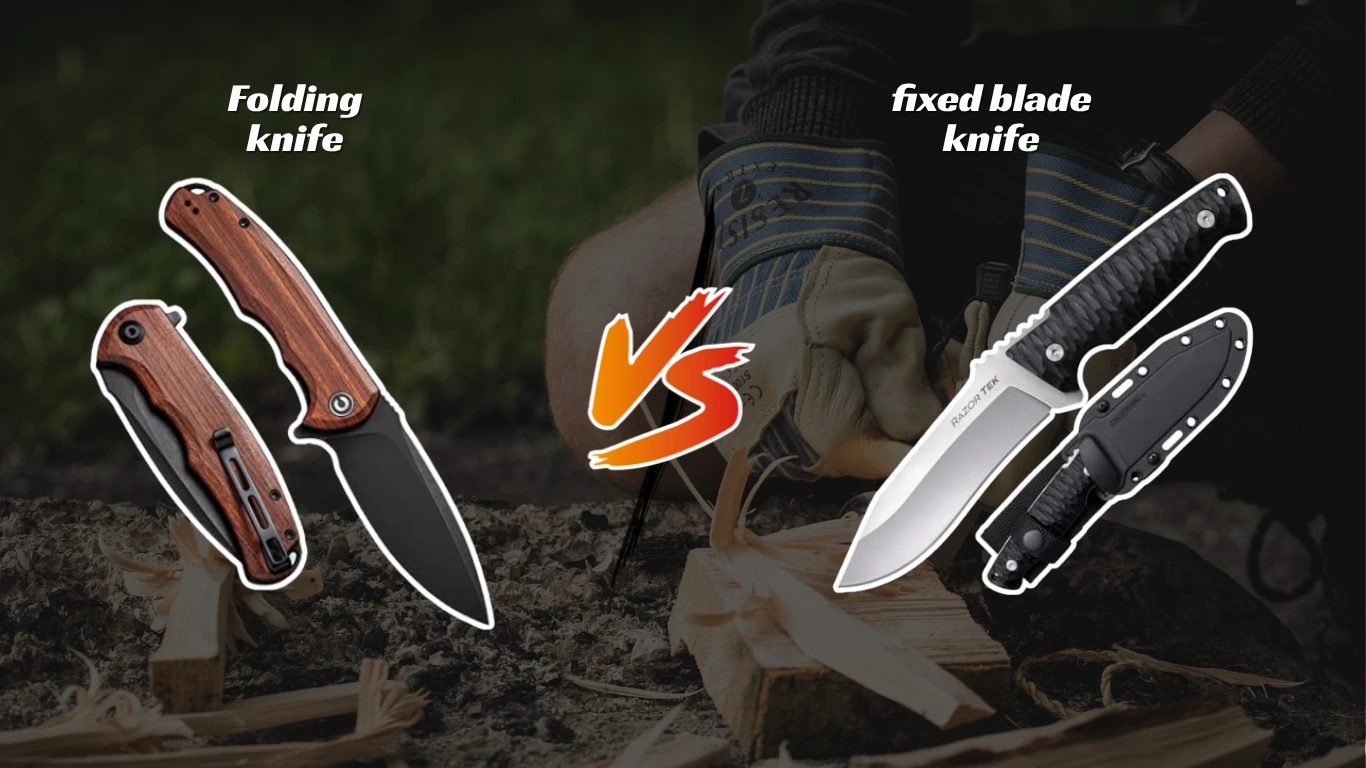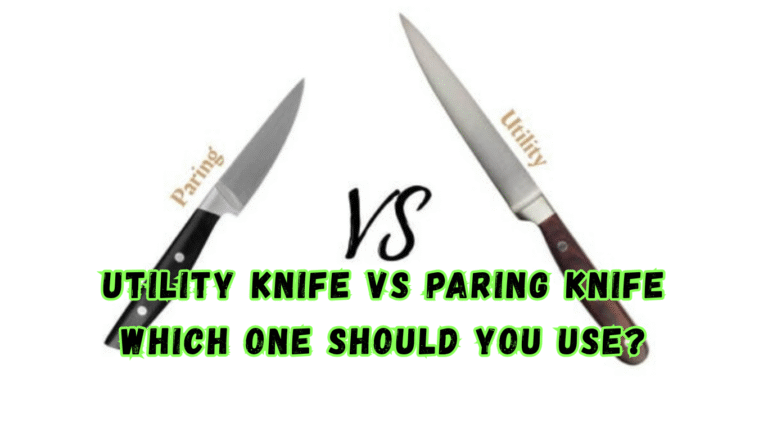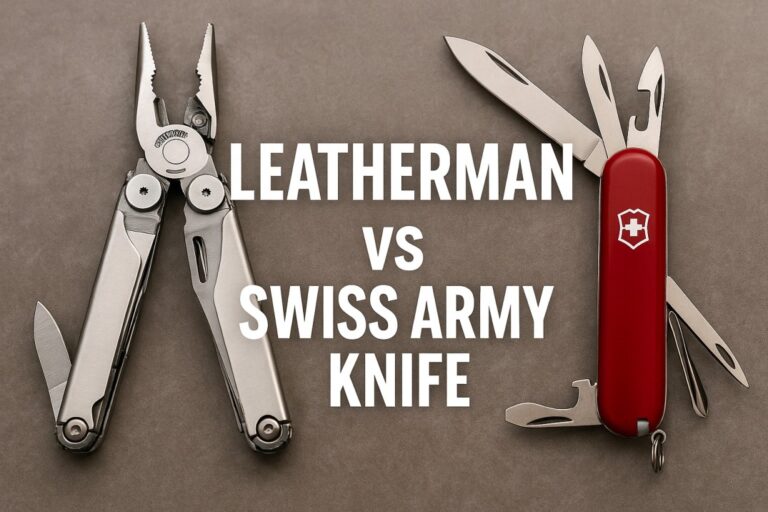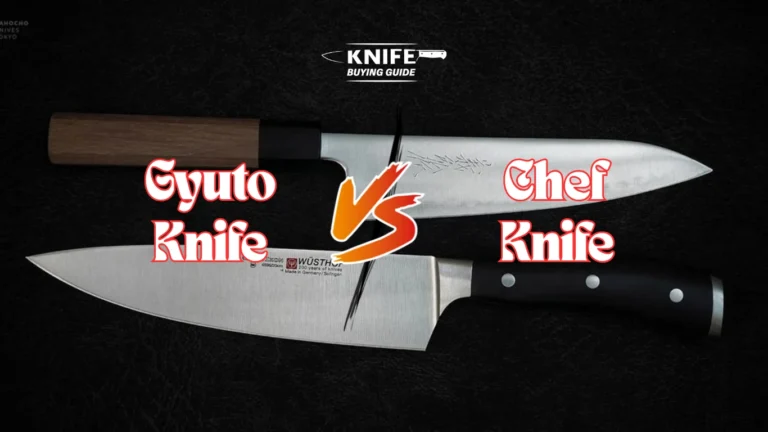Folding Vs Fixed Blade Hunting Knife: Which is Superior?
Choosing the right hunting knife can make all the difference in your outdoor adventures. When it comes to deciding between a folding knife and a fixed blade, you might find yourself caught in a dilemma.
Each type has its own unique benefits, and the choice ultimately depends on your specific needs and preferences. But how do you determine which one is the perfect fit for you? We’ll dive into the essential features of both folding and fixed blade hunting knives.
By the end, you’ll be equipped with the knowledge you need to make the best decision for your hunting expeditions. Let’s uncover which knife will be your trusty companion in the great outdoors.
Folding Knife Benefits
Hunting knives are essential tools for outdoor enthusiasts. Choosing between a folding and a fixed blade can impact your hunting experience. Folding knives offer several benefits that make them popular. They are versatile, portable, and safe. Let’s explore the advantages of using a folding knife for hunting.
Compact Design
Folding knives are known for their compact design. This makes them easy to store and transport. Unlike fixed blades, folding knives can fit into small spaces. Their design allows the blade to fold into the handle. This reduces the knife’s size significantly. Consider the following benefits of compact design:
- Space-saving:Easily fits in pockets or small compartments.
- Travel-friendly:Convenient for backpackers and travelers.
- Discreet:Less noticeable and suitable for everyday carry.
A compact folding knife is a great companion for hunters. It ensures you are always prepared without the burden of extra weight.
Ease Of Carry
Another advantage of folding knives is their ease of carry. They are designed to be lightweight and portable. This makes them ideal for long hunting trips. Here are some points to consider:
- Lightweight:Reduces fatigue during long hikes.
- Clip-on feature:Many have clips for attaching to belts or pockets.
- Versatile:Suitable for different types of outdoor activities.
Folding knives offer an efficient way to carry a reliable tool. They do not add unnecessary bulk to your gear. This makes them a practical choice for hunters on the move.
Safety Features
Safety is crucial when handling knives. Folding knives come with various safety featuresthat protect users. One key feature is the locking mechanism. This ensures the blade stays in place when open or closed. Important safety benefits include:
- Locking mechanism:Prevents accidental closure during use.
- Secure grip:Handles often designed for a firm hold.
- Blade guards:Some models include guards to protect fingers.
A folding knife’s safety features provide peace of mind. They make it a reliable choice for both beginners and experienced hunters. Ensuring safety in the field is always a priority.

Credit: www.amazon.com
Fixed Blade Knife Benefits
Choosing the right hunting knife is crucial for any outdoor enthusiast. Both folding and fixed blade knives have their unique advantages. While folding knives offer portability, fixed blade knives stand out for their robust performance. Let’s explore the numerous benefits of using a fixed blade knife during your hunting adventures.
Durability
Fixed blade knives are renowned for their exceptional durability. Unlike their folding counterparts, fixed blade knives have no moving parts. This makes them less prone to wear and tear. The solid construction ensures they can withstand harsh conditions and rigorous use.
- No Hinges or Joints: Reduces the risk of breaking.
- Thicker Blade Design: Offers enhanced strength and resilience.
- Full Tang Construction: Extends the blade into the handle for additional strength.
Consider this simple comparison table to understand their durability better:
| Feature | Fixed Blade | Folding Blade |
|---|---|---|
| Moving Parts | None | Multiple |
| Strength | High | Moderate |
For hunters venturing into rugged terrains, the durability of a fixed blade is invaluable. It ensures the knife remains reliable, no matter the challenge.
Stability In Use
One of the standout features of fixed blade knives is their stability during use. The blade remains firmly in place, providing a consistent and reliable cutting experience. This stability is crucial for precision tasks.
Key aspects of their stability include:
- Consistent Blade Alignment: Ensures precise cuts.
- No Blade Wobble: Offers a steady grip and control.
- Ideal for Heavy-Duty Tasks: Suitable for cutting through tough materials.
In situations where precision is vital, such as skinning game, a fixed blade knife offers the confidence you need. The stability it provides can make the difference between a successful or failed task.
Easier Maintenance
Maintaining a fixed blade knife is typically more straightforward than a folding knife. With fewer components, cleaning and upkeep become simpler tasks. This ease of maintenance contributes to the knife’s longevity and performance.
Consider these maintenance benefits:
- Simple Cleaning Process: No intricate parts to disassemble.
- Less Prone to Rust: Easier to thoroughly dry and oil.
- Quick Sharpening: Straightforward blade design facilitates easy sharpening.
Maintaining your knife is essential for optimal performance. Fixed blade knives require less time and effort, making them ideal for hunters who prefer to focus on their outdoor activities rather than maintenance chores.
Key Features To Compare
Choosing between a folding and a fixed blade hunting knife can be daunting. Each type has its own set of features that make it unique. Understanding these features will help you decide which knife suits your hunting needs best. Let’s explore some key aspects such as blade material, handle comfort, and weight and balance. These features play a crucial role in determining the knife’s performance and suitability for your hunting adventures.
Blade Material
The blade material is a critical factor when comparing folding and fixed blade hunting knives. A good blade material ensures durability, sharpness, and resistance to wear and corrosion. Here are some common materials:
- Stainless Steel:Known for its corrosion resistance. It’s easy to maintain and ideal for wet conditions.
- Carbon Steel:Offers excellent sharpness and edge retention but requires regular maintenance to prevent rust.
- High Carbon Stainless Steel:Combines the best of both worlds. It offers good sharpness and rust resistance.
A table below provides a quick comparison of the materials:
| Material | Durability | Ease of Maintenance | Sharpness |
|---|---|---|---|
| Stainless Steel | High | Easy | Moderate |
| Carbon Steel | Very High | Moderate | High |
| High Carbon Stainless Steel | High | Moderate | High |
Handle Comfort
The handle of a hunting knife significantly affects your grip and comfort. A comfortable handle ensures better control and less hand fatigue. Consider these factors when evaluating handle comfort:
- Material:Handles can be made of wood, rubber, or synthetic materials. Each offers a different feel and grip.
- Ergonomics:Look for handles with contours that fit your hand shape. This helps in reducing strain during prolonged use.
- Texture:A textured handle offers a better grip, especially in wet conditions.
Choosing the right handle can make a significant difference in your hunting experience. Consider your hand size and the conditions in which you’ll use the knife.
Weight And Balance
The weight and balance of a hunting knife determine how it feels in your hand. A well-balanced knife offers better control and precision. Let’s break down these aspects:
- Weight:Lightweight knives are easier to carry and maneuver. Heavier knives may offer more cutting power but can cause fatigue.
- Balance:A knife with a balanced weight distribution feels comfortable. It allows for better control during cutting tasks.
Consider the tasks you’ll perform with the knife. For quick and precise cuts, a lightweight and balanced knife is ideal. For heavier tasks, some may prefer a knife with more weight.
Best Uses For Folding Knives
Folding knives are versatile tools prized for their portability and ease of use. Unlike fixed blade knives, folding knives feature a blade that folds into the handle. This design makes them compact and safe to carry in pockets or bags. These knives are well-suited for a range of activities, offering practical benefits in everyday situations and light outdoor tasks. Understanding their best uses can help you make the most of your folding knife.
Everyday Carry
Folding knives are ideal for everyday carrydue to their compactness and functionality. They fit neatly into a pocket or purse, making them accessible for daily tasks. Here are some common uses:
- Opening packages and envelopes
- Cutting ropes or strings
- Peeling fruit or preparing small snacks
- Minor repairs and adjustments
For those who like to be prepared, a folding knife can be an essential tool. It combines utility with convenience, serving various purposes without taking up much space. Many models feature locking mechanismsfor safety, ensuring the blade stays securely in place during use. This feature is crucial for preventing accidents while handling the knife.
Light Outdoor Activities
Folding knives shine during light outdoor activities. They are suitable for hikers, campers, and anglers who need a reliable tool without the bulk. Key uses include:
- Preparing food while camping
- Trimming fishing lines
- Carving small objects or wood
- Handling simple first aid tasks like cutting bandages
Many outdoor enthusiasts appreciate the versatilityof folding knives. While not designed for heavy-duty tasks, their compact design allows for easy handling and storage. They are perfect for tasks that require precision and control, making them a favorite among those who enjoy spending time in nature.
Convenience In Packing
One of the greatest advantages of folding knives is their convenience in packing. When space is limited, their foldable design allows them to fit snugly into any gear:
| Feature | Benefit |
|---|---|
| Compact Size | Easy to store in small spaces |
| Lightweight | Doesn’t add much weight to your gear |
| Foldable Design | Safe to carry and handle |
For travelers and adventurers, this feature is indispensable. The ability to pack efficiently without sacrificing functionality makes folding knives a smart choice. Whether heading out for a day trip or a longer journey, a folding knife provides peace of mind and readiness for unexpected situations.
Best Uses For Fixed Blades
In the world of hunting knives, choosing between a folding and a fixed blade can be a tough decision. Each type has its own strengths. But fixed blades are preferred for their durability and strength. This guide highlights the best uses for fixed blades, showcasing why they are a reliable choice for many hunters.
Heavy-duty Tasks
Fixed blade knives are ideal for heavy-duty tasks. Their solid construction makes them strong and reliable. They can handle tasks that require a lot of force. Here are some tasks where fixed blades excel:
- Chopping and Splitting:With a full tang design, fixed blades can chop wood efficiently.
- Batoning:This technique involves splitting wood by striking the back of the knife with a baton or stick. Fixed blades perform well here.
- Prying:The sturdy nature of a fixed blade allows it to pry open containers or lift heavy lids.
The table below compares fixed and folding blades for heavy-duty tasks:
| Task | Fixed Blade | Folding Blade |
|---|---|---|
| Chopping | Excellent | Poor |
| Batoning | Excellent | Poor |
| Prying | Excellent | Poor |
Survival Situations
In survival situations, a fixed blade is invaluable. Its robust design can withstand harsh conditions. Survival tasks often test the limits of a knife. Here’s why fixed blades are essential in such scenarios:
- Building Shelters:They can cut branches and ropes effectively for constructing shelters.
- Food Preparation:Their sharp edge is perfect for cutting and preparing food.
- Self-Defense:A fixed blade is reliable for defense against wild animals.
Consider these points about fixed blades in survival situations:
- They are easy to clean, avoiding rust and corrosion.
- They are less likely to break under pressure.
- They can be used to signal for help by reflecting sunlight.
Field Dressing Game
For hunters, field dressing game is a crucial task. A fixed blade knife offers precision and control. This makes it ideal for this delicate process. Key benefits include:
- Sturdy Blade:The solid blade ensures clean cuts, reducing waste.
- Ease of Cleaning:The simple design allows for easy cleaning after use.
- Versatility:It can skin, gut, and portion game efficiently.
Hunters often face these challenges when dressing game:
- Ensuring the knife remains sharp throughout the process.
- Avoiding damage to the meat.
- Maintaining a steady hand for precise cuts.
With its reliability and ease of use, a fixed blade is a hunter’s best friend in the field.

Credit: www.amazon.com
Choosing The Right Knife
Choosing the right hunting knife can make your outdoor adventures more successful and enjoyable. A good knife is essential for tasks like skinning, cutting, and preparing game. Two main types of knives are popular among hunters: folding and fixed blade knives. Each has its benefits and drawbacks. Understanding your needs and preferences will help you select the right tool for your hunting trips.
Personal Preferences
Your personal preferences play a crucial role in selecting a hunting knife. Think about how you plan to use the knife and your comfort level with different designs. Here are some factors to consider:
- Ease of Use:Do you prefer a knife that opens quickly, or is stability more important?
- Portability:A folding knife is often easier to carry due to its compact size.
- Maintenance:Fixed blade knives generally require less maintenance than folding knives.
- Safety:Consider the safety mechanisms in folding knives to prevent accidental closure.
Some people prefer the simplicity and sturdiness of a fixed blade. Others like the versatility and portability of a folding knife. Both types offer unique benefits:
| Feature | Folding Blade | Fixed Blade |
|---|---|---|
| Portability | High | Low |
| Durability | Moderate | High |
| Ease of Cleaning | Moderate | High |
| Price Range | Varies | Varies |
Type Of Hunting
The type of hunting you do also influences your choice. Different hunts require different tools. Consider these common hunting scenarios:
- Big Game Hunting:A fixed blade knife is often better for large animals. Its strength and durability help with skinning and gutting.
- Small Game Hunting:A folding knife can be more suitable. Its size makes it easy to carry and handle smaller tasks.
- Fishing:For fishing trips, a folding knife with a gut hook can be very useful.
Each type of hunting has its unique requirements. For example, big game hunters might need a knife that can withstand heavy use. Small game hunters may prefer a knife that’s easy to pack and quick to deploy. Assess the game you plan to hunt and match your knife accordingly.
Budget Considerations
Budget is another significant factor in choosing a hunting knife. Prices vary widely based on brand, material, and design. Here are some points to ponder:
- Basic Models:Budget-friendly knives are available for beginners or those who hunt occasionally.
- Mid-Range Options:These knives offer a balance between quality and price. They’re good for regular hunters.
- High-End Knives:Premium knives provide durability and advanced features. They’re ideal for serious enthusiasts.
Consider what you’re willing to spend on a knife. A more expensive knife might offer better materials and craftsmanship. Still, a budget option can suffice for casual use. Always weigh the cost against the frequency and intensity of your hunting activities.
Care And Maintenance
Choosing between a folding and a fixed blade hunting knife can be challenging. Each type has its own advantages, but one thing remains constant: the necessity for proper care and maintenance. Maintaining your hunting knife ensures it remains reliable and efficient during outdoor adventures. This section will guide you through sharpening techniques, cleaning methods, and storage tips, essential for both folding and fixed blade knives.
Sharpening Techniques
Sharpening your hunting knife is crucial for maintaining its performance. A sharp blade ensures precision, safety, and efficiency. Here are some techniques:
- Stone Sharpening:Use a whetstone. Start with a coarse grit stone, moving to finer grit for a polished edge. Maintain a consistent angle as you slide the blade across the stone.
- Electric Sharpeners:These tools offer convenience. They’re especially useful for beginners and ensure a uniform edge.
- Manual Sharpeners:Compact and easy to use. These are great for quick touch-ups.
Here’s a basic sharpening angle guide:
| Blade Type | Recommended Angle |
|---|---|
| Folding Blade | 15-20 degrees |
| Fixed Blade | 20-25 degrees |
Regular sharpening keeps your knife ready for action.
Cleaning Methods
Proper cleaning extends the life of your hunting knife. It prevents rust and maintains hygiene. Follow these steps:
- Disassembly:For folding knives, disassemble before cleaning. This allows access to all parts.
- Soap and Water:Use mild soap with warm water. Scrub gently using a soft brush.
- Drying:Ensure the knife is completely dry to prevent rust.
- Lubrication:Apply a light coat of oil. This reduces friction and protects against moisture.
A clean knife is a safe knife. Regular cleaning keeps it in top condition.
Storage Tips
Proper storage is vital for maintaining your knife’s quality. Consider these tips:
- Sheath Use:Store the knife in its sheath. This protects the blade from damage.
- Temperature Control:Avoid extreme temperatures. Store in a cool, dry place.
- Separate Storage:Keep knives away from other metal objects. This prevents accidental dulling or damage.
Follow these tips to ensure your knife remains ready for any hunting adventure.

Credit: www.vosteed.com
Frequently Asked Questions
Folding knives are portable and compact. Fixed blades are stronger and more reliable for heavy tasks.
Folding knives offer safety by design. They can be closed to protect the blade and user.
Fixed blades are preferred for hunting. They provide strength and reliability for demanding tasks.
Folding knives are less durable for heavy tasks. Fixed blades perform better in tough conditions.
Consider usage, portability, and task demands. Folding knives are portable; fixed blades are robust for tough jobs.
Conclusion
Choosing the right hunting knife depends on your needs. Folding knives offer convenience. Easy to carry and store. Fixed blade knives provide strength. Great for tough tasks. Consider how you hunt. Think about the game you pursue. Both types have their advantages.
Carefully weigh your options. A well-chosen knife enhances your hunting experience. Always prioritize safety and quality. Make your choice with confidence. Happy hunting!







